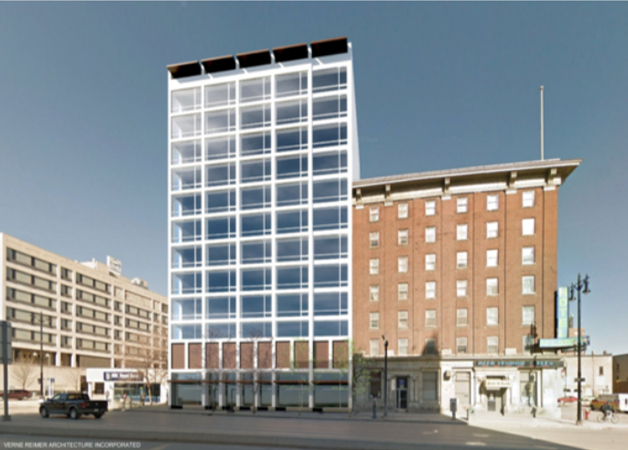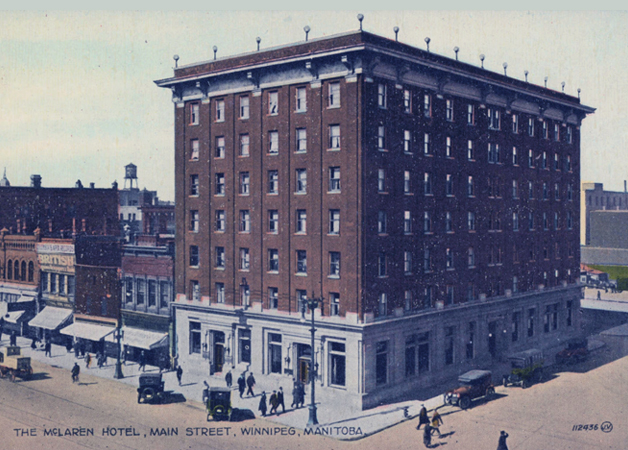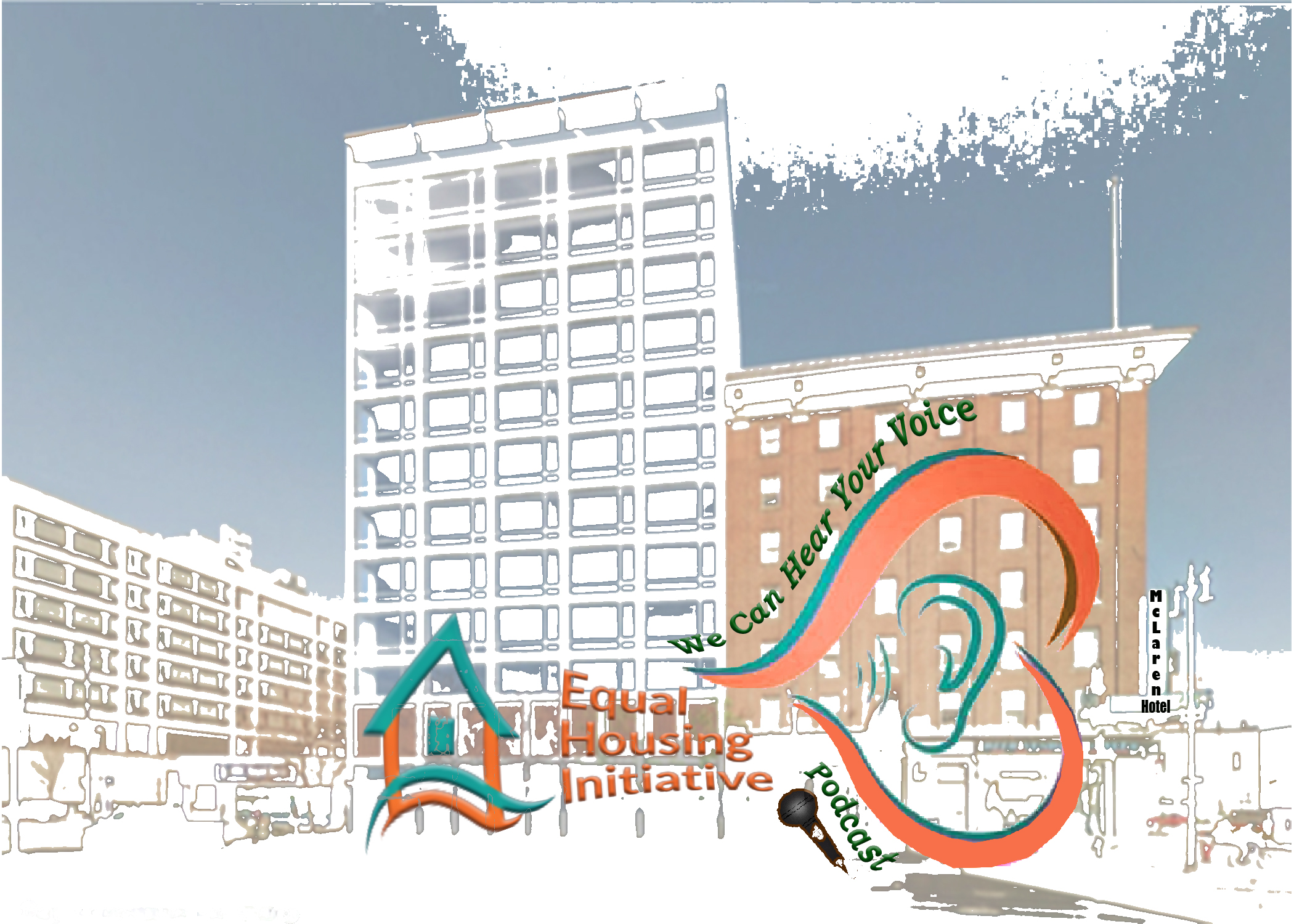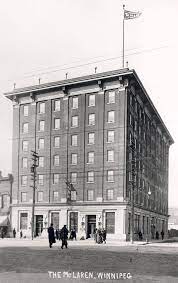A Venture Philanthropy Initiative
First Housing Project
The McLaren displayed with future development for transitioning support for long term tenants.

The McLaren Hotel is a family-owned hotel located at 554 Main Street, in Winnipeg, Manitoba. It is single room occupancy (SRO) hotel that provides last resort housing to Manitobans who require shelter and live in poverty. Residents are people who often face other barriers, such as addictions, mental health issues, and low to no regular income, unemployment, and overall insecurity.
The hotel currently houses residents in 150 rooms spread over 6 floors. Guided by article 25 (1) of the Universal Declaration of Human Rights, the hotel owners using the Equal Housing Initiative’s (EHI) venture philanthropy model have initiated a redevelopment process that includes, among others, renovating and repurposing the hotel into a safe and affordable supportive recovery housing.
EHI will lead the Redevelopment Project, beginning with a research initiative to inform and design innovative best practices.
In addition to the hotel redevelopment project, the hotel owners are planning to concurrently develop the adjacent surface parking lot at 550 Main Street as affordable housing in partnership with Winnipeg Housing Rehabilitation Corporation. The proposed development will offer 108 new affordable units.
By offering safe, affordable, and independent housing adjacent to supportive housing at the McLaren Hotel, residents can transition to independent housing once they have established a stable situation. Although more independent than the SRO hotel environment, residents are able to belong to a community that stabilizes and supports them.
The expected positive social and economic benefits are material and will generate meaningful return on impact investment by offering staged housing to our communities’ most vulnerable. The target resident draws significantly on social services for survival, including shelters, social agencies and hospitals. They also tend to interact more frequently with police, fire and paramedics services.

Framing the Evidence - “Belonging nowhere”
“Not belonging is a terrible feeling. It feels awkward and it hurts, as if you were wearing someone else’s shoes.” - Phoebe Stone
The United Nations (UN) has called homelessness “perhaps the most visible and most severe symptom of the lack of respect for the right to adequate housing”.
The UN Special Rapporteur on adequate housing has noted that homelessness’s most common definitions recognize that an element of social exclusion is part of the experience of the homeless - In this respect homelessness implies belonging nowhere rather than simply having nowhere to sleep.(3)
EHI believes everyone has the right to and needs a sense of belonging. Poverty is a common denominator in the experience of the homeless.
Other causes or factors which make people more vulnerable to homelessness are unemployment, a lack of social security systems, a lack of affordable housing, forced evictions, non-availability of social housing, conflicts and natural disasters, (COVID-19) as well as a lack of attention to the needs of the most vulnerable.
The “deinstitutionalization” of mental health care, which first started in the 1960s and 1970s, led to persons with disabilities swelling the ranks of the homeless.
Besides the violation of their human right to adequate housing, homeless persons may be deprived of a whole range of other human rights.
Laws that criminalize homelessness, vagrancy or sleeping rough, along with “street cleaning” operations to remove homeless people from the streets, under bridges and near river banks have a direct impact on their physical and psychological integrity.
Merely by not having a secure place to live, nor any privacy, homeless persons are much more vulnerable to adverse effects of addiction, violence, threats and harassment.(4)
(3) https://www.ohchr.org/Documents/Publications/FS21_rev_1_Housing_en.pdf
Introduction – A Question of Housing Guided by article 25 (1) of the Universal Declaration of Human Rights
The Equal Housing Initiative (EHI) believes Housing is a basic human right that everyone is entitled to, without discrimination.
This right is important in ensuring affordable and accessible housing stock and most importantly, a housing environment that facilitates participation in community life and promotes physical, emotional and spiritual health. (1)
In practice, however, the most marginalized of our society - those in absolute homelessness, poverty, living with mental illness/chronic addictions and other health issues, face numerous barriers in accessing this most basic human right.
Although steps have been taken towards the provision of housing — including efforts to accommodate disadvantaged individuals in housing policies — the most vulnerable continue to face significant challenges and barriers that limit the exercising of their human right to appropriate equitable and equal housing.
This raises questions relating to how equity and equality for all is accommodated in the provision of housing.
It raises questions relating to the detrimental impact that inappropriate housing has on individuals, not just in terms of forcing them to move into substandard or institutional housing, but in terms of their other human rights.
For example, insecure and inappropriate housing can have serious detrimental impact on an individual’s right to health, particularly mental health. (2)
- Equality -
“Ensuring that every individual has an equal opportunity to make the most of their lives and talents.”
Equality means ensuring that everyone has the same opportunities and receives the same treatment and supports.
- Equity -
“Giving more to those who need it”
Equity is about giving people what they need through inclusion in decision making about their lives in order to make things fair with freedom to choose.
(1) Quinn & Degener, 2002, p. 22.
(2) Battams & Baum, 2010, p. 1026.



